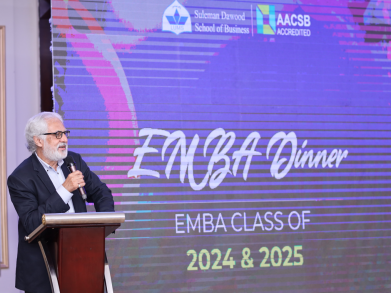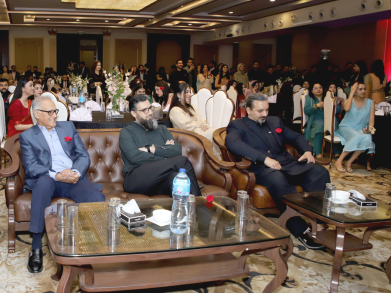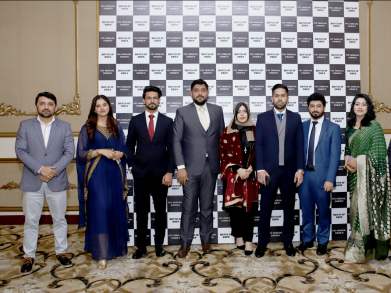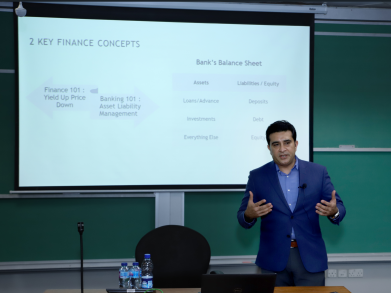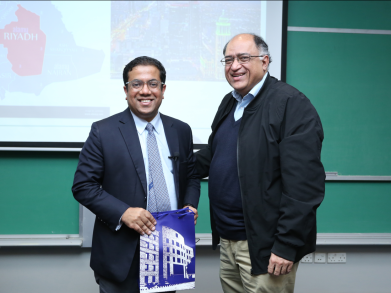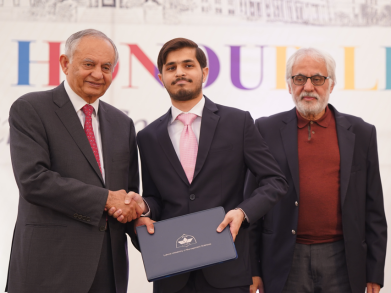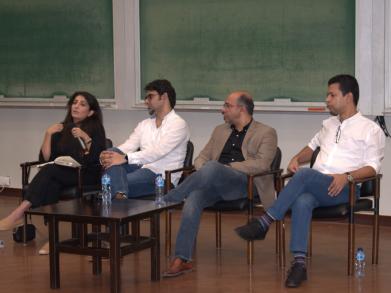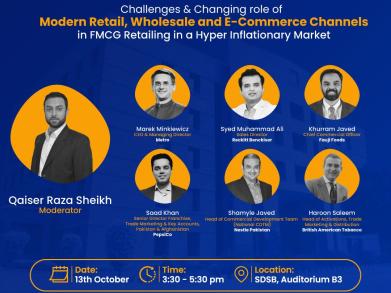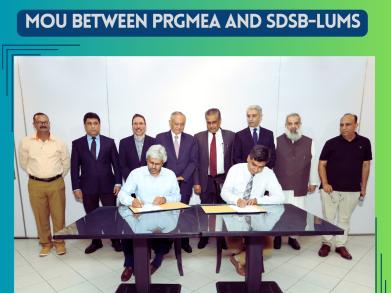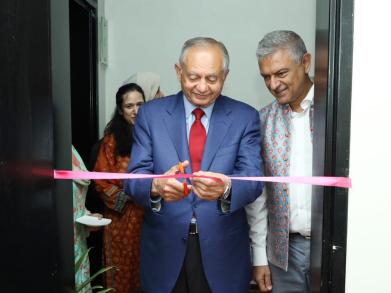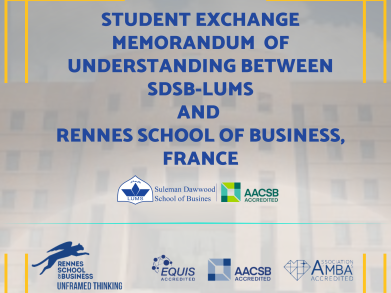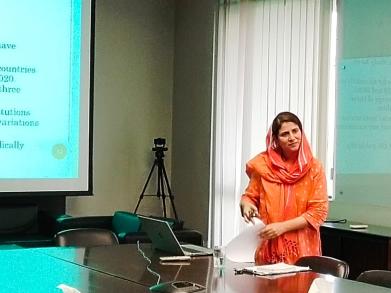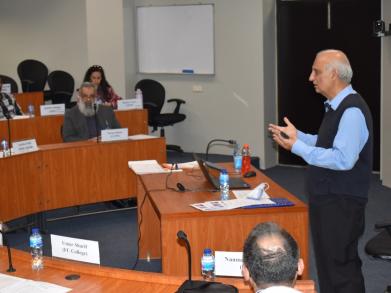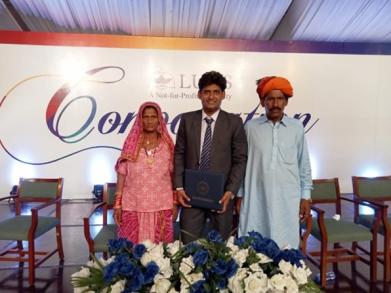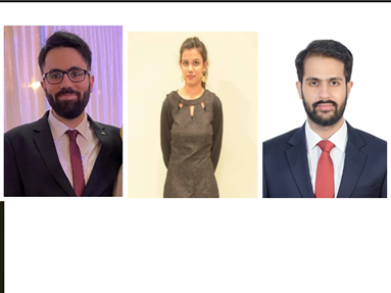Exploring Electric Mobility in Pakistan: Challenges, Opportunities, and Business Models
On Saturday, 25 January 2025, the Suleman Dawood School of Business (SDSB) at LUMS hosted a dynamic one-day workshop titled “Electric Mobility in Pakistan: Business Model, Challenges, and Opportunities.” The event brought together prominent stakeholders from industry, academia, government, and supply chain ecosystems to discuss Pakistan's evolving landscape of electric vehicles (EVs). Electric mobility (e-mobility) rapidly transforms global transportation, offering sustainable alternatives to traditional fossil fuel-powered vehicles. Pakistan is at a pivotal juncture as the world increasingly adopts electric vehicles (EVs) to combat environmental degradation and reduce dependency on non-renewable energy sources. The transition to e-mobility could significantly alleviate challenges such as rising fuel import costs, worsening urban air pollution, and insufficient public transportation infrastructure. However, adopting this innovative trend in Pakistan requires overcoming unique challenges, from infrastructure limitations and policy gaps to cultural and financial barriers.
The workshop aimed to examine the unique challenges and opportunities shaping the future of sustainable mobility in the country while fostering collaboration between professionals, policymakers, and researchers.
The workshop opened with a welcome note from Dr Shakeel Sadiq Jajja, Programme Chair, who highlighted the critical need for innovative business models tailored to Pakistan’s context and underscored the significance of bridging industry and academia to accelerate the country’s transition to electric mobility. This sentiment set the stage for an engaging day with informative sessions and thought-provoking discussions.
The first session delved into global trends in electric mobility, focusing on lessons from the Chinese electric vehicle industry. Participants explored how China’s EV ecosystem has evolved to become a worldwide leader and discussed strategies Pakistan could adopt to overcome infrastructure and policy challenges while fostering market growth. The workshop also featured in-depth case studies that resonated with the audience. One session examined Gogoro’s innovative transformation from an electric scooter company to an energy platform. At the same time, another explored General Motors' foray into electric cars and assessed whether it signalled a boom or bust for the EV revolution.
Key discussions revolved around the enablers and barriers to EV adoption, including policy frameworks, infrastructure development, and the importance of creating an efficient local manufacturing and service ecosystem. The final session provided valuable insights from ongoing research at LUMS, focusing on strategies to enhance EV uptake in Pakistan and align stakeholders towards a cohesive and practical roadmap.
The workshop concluded with closing remarks, encapsulating the critical role of collaboration between industry, academia, and government in navigating the complexities of electric mobility. Attendees departed with actionable takeaways on addressing infrastructure gaps, fostering sustainable innovation, and designing business models tailored to the evolving needs of the Pakistani market.
By addressing the multifaceted dynamics of the EV landscape, the workshop reaffirmed SDSB’s commitment to fostering meaningful dialogue on contemporary challenges. It further showcased the school’s pivotal role as a knowledge-sharing platform, equipping stakeholders to seize opportunities, overcome barriers, and drive the future of sustainable transportation in Pakistan.




